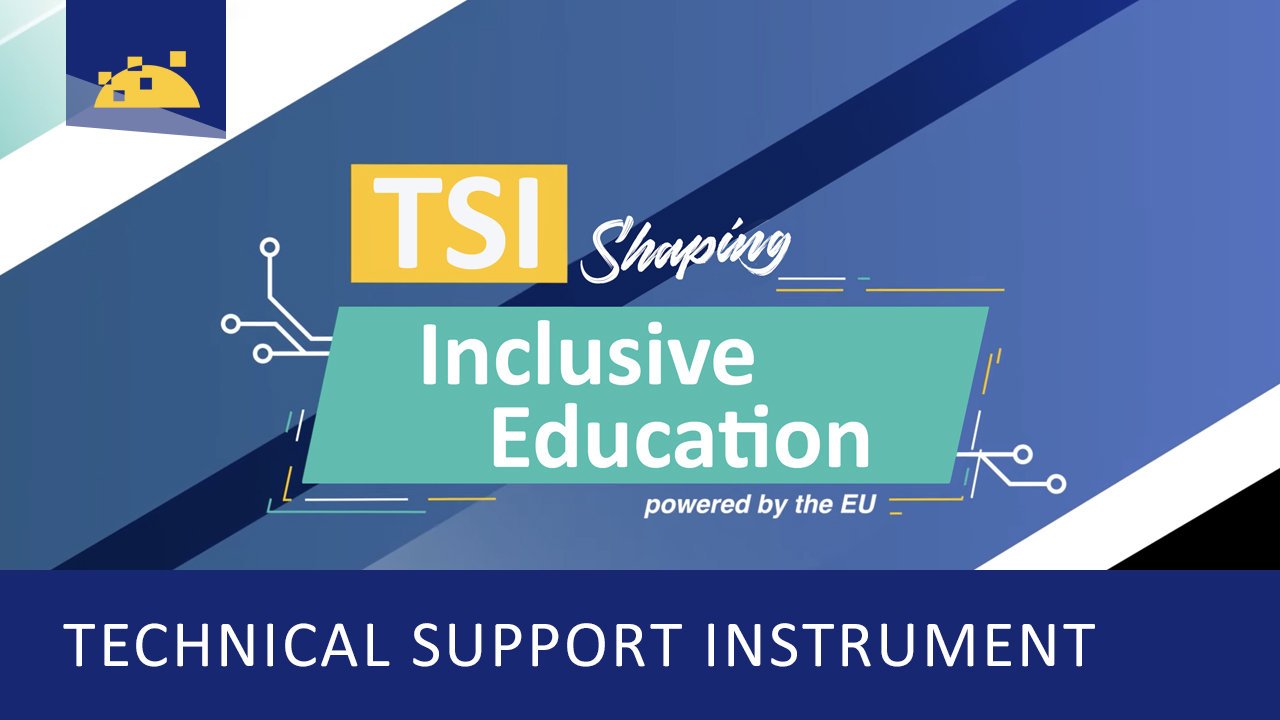This Technical Support Instrument (TSI) project supported the Ministries of Education of Italy, Portugal and Spain in their on-going efforts to improve inclusive education systems and practices. Its overall aim was to help each country strengthen capacity and achieve sustainable changes in both policy and practice. The project ran from 2022–2025.
With a focus on supporting the implementation of policy reforms that promote equity and access in education for all learners, including those from disadvantaged backgrounds, the project addressed key challenges and gaps in existing policies and practices.
Its main objectives were to:
- Improve the design, consistency in policy implementation at national and regional level, and the overall quality of inclusive education policies across Italy, Portugal and Spain.
- Engage key national and regional education stakeholders and build or strengthen their capacity to implement quality inclusive education across all regions.
As a collaborative initiative, stakeholders at all levels were actively involved in sharing knowledge and experience, ensuring that the project outcomes were context-specific and appropriate for each national setting.
This was a flagship TSI project under the Implementation of the Child Guarantee, which aims to help countries implement actions and policies to prevent and combat child poverty and social exclusion.
More information about this project is available on SG REFORM’s TSI website.
Activities
The project was organised into five interlinked phases, with each phase building on the results of the others. Together, these activities produced a wide range of outputs, including reports, tools, resources, news, events, webpages and a video.
Key activities included:
- A review of the current status of inclusive education in each country
- Stakeholder engagement, including online and in-person meetings with policy-makers, school staff, families and organisations representing vulnerable groups, such as Roma and refugees, from across each country
- A peer-learning event in Sweden
- Development of individual action plans for each country, with tailored recommendations and tools to address specific national priorities
- Webinars and training sessions for regional stakeholders, also shared with other regions for wider impact
- Materials designed for use in professional learning, as well as for families, communities and professionals from other sectors, such as local employers
- A comprehensive report on monitoring and evaluation across education systems
- Practical examples and tools provided to support country-level use.
Outputs and deliverables
Each country received an individualised action plan with recommendations and tools. These can be implemented immediately or at a later stage, depending on national priorities and contexts.
Videos
Several videos from the project are available on EASNIE’s YouTube channel.
Alongside a video giving an overview of the project, a series of webinars is available from the project’s final dissemination event, on Monitoring and evaluation at school level, Collaborative working and thinking across all levels of the education system, and Effective strategies for resource allocation and use at school and regional levels.
Videos of individual presentations from the event are also available:
- Dr Gordon Porter: Leadership and policy in inclusive education and inclusive instructional strategies and Collaboration and supporting teachers and engaging parents
- Dr Diana Murdoch and Dr Anthoula Kefallinou: Ethical data collection and stakeholder engagement in inclusive education
- Dr Kathleen Mortier: Collaborative working and thinking at the individual and classroom level
- Mieke Miere: The power of collaborative thinking in inclusive education systems
- Bodil Hafsås: Cross-sectoral collaboration in Norwegian ministries
- Professor Mel Ainscow: Promoting inclusion and equity in education: lessons from Portugal
- Dr Simoni Symeonidou: Making the most of financial and human resources for inclusive education
- Dr Paula Hunt: Intentional and purposeful resource allocation for inclusive education.
Related news
- Addressing disparities in access to inclusive education in Italy, Portugal and Spain
- Technical Support Instrument in Italy, Portugal and Spain: Steering Committee meeting in Portugal
- Technical Support Instrument: More inclusive education through stakeholder engagement in Italy, Portugal and Spain
- Combatting disparities in access to inclusive education in Italy, Portugal and Spain: Final dissemination event
- Combatting disparities in access to inclusive education in Portugal, Italy and Spain: Conference in Spain


